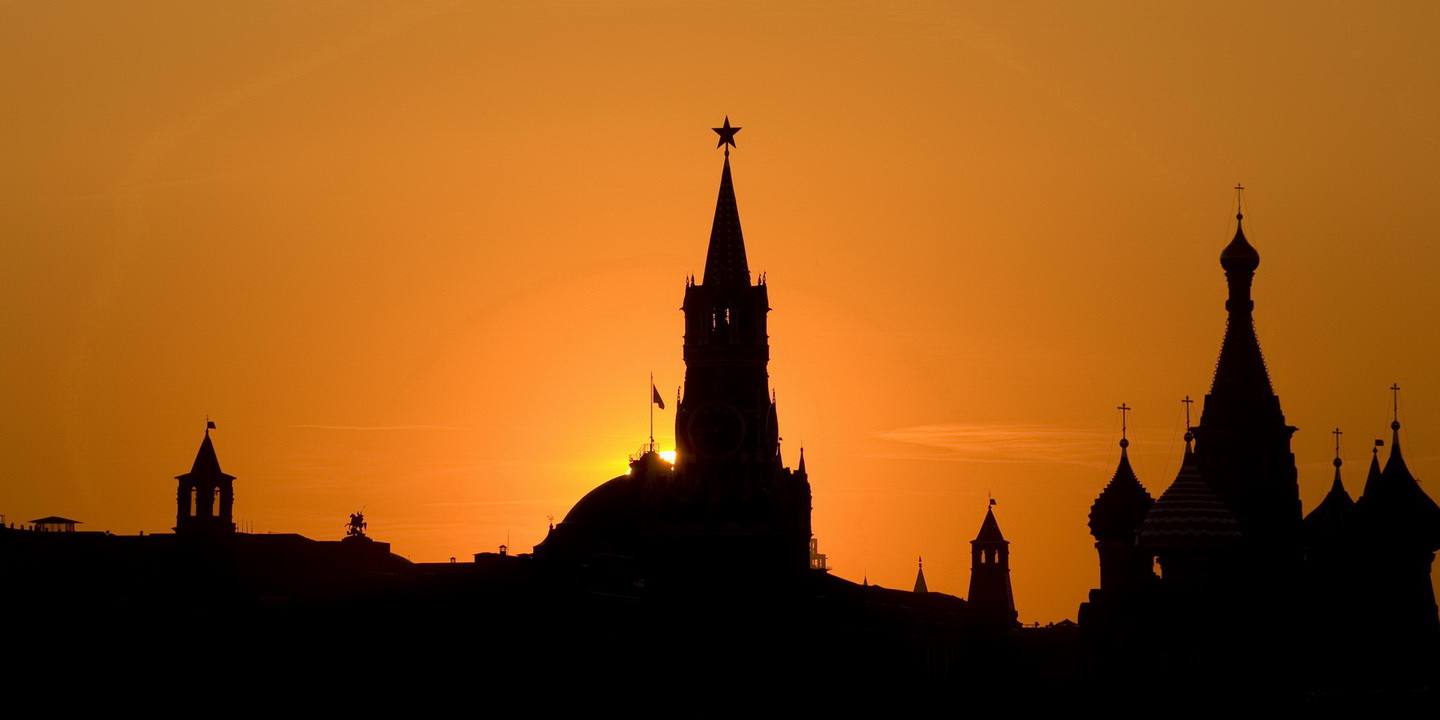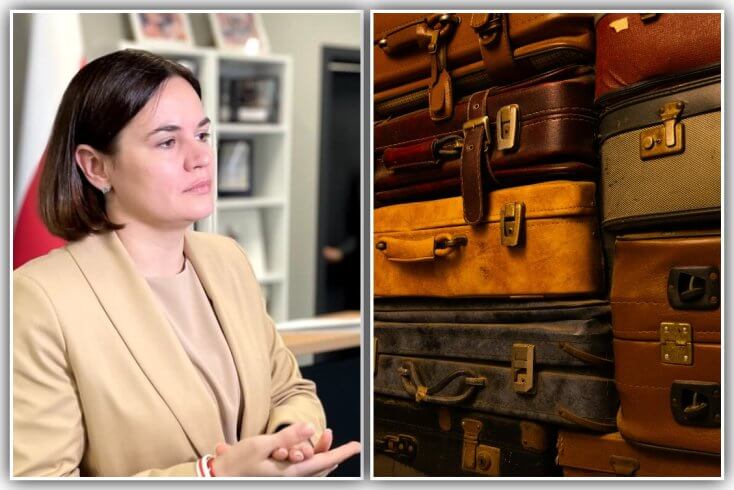Śviatłana Cichanoŭskaja is trying to convey to Western politicians that Belarus’s transition to democracy is a precondition for reliable regional security.

On October 17, the Belarusian pro-democracy leader gave a lecture in Amsterdam, hosted by RAAM, where she raised important points about Belarus’ future and possible scenarios for change.
The topic is complex because the future is uncertain and difficult to predict. However, it is possible to extrapolate current developments and model the potential behavior of key political actors.
Cichanoŭskaja suggested that the death of authoritarian ruler Alaksandar Łukašenka is one possible event that could trigger change in the country.
It should be noted that the biological factor is especially significant in a personalist regime. Yet the ruler’s health is a closely guarded secret — we are dealing with unpredictable biological clocks.
Let us assume that Łukašenka remains in power for another ten years. In such a dynamic age, so many events — both within and beyond Belarus — will occur that making accurate predictions for such a long period is nearly impossible.
Any predictions we make today rest on current trends. But in ten years, the situation will be entirely different, rendering today’s theoretical models obsolete.
Moreover, it is perhaps more realistic to consider Łukašenka’s retirement rather than his death.
The ruler’s departure would trigger change
Łukašenka’s departure is the most likely catalyst for change, because he is the main obstacle to reform.
After the ruler’s exit, the regime cannot remain as it is. Why? Because it is a system of personal power: all institutions and mechanisms are built and tailored for one individual.
The system functions only because it receives directives from the ruler and suppresses all alternative political forces.
The person at the top is irreplaceable. If Łukašenka is removed, the system will collapse. The loss of the key element will inevitably trigger the evolution of the regime. His successors will find it almost impossible to preserve the status quo.
Łukašenka’s departure would paralyze the system, create a power vacuum and open a “window of opportunity” for other actors. At that moment, various forces — including some not yet visible — could enter the political stage.
First and foremost, the ruling nomenklatura would attempt to become a political actor. For now, it serves merely as an instrument in Łukašenka’s hands, but it has its own interests that are currently suppressed.
These interests differ among various groups within the elite, which would likely spark conflicts. Power struggles could erupt among state institutions.
Currently, all decisions are made by Łukašenka, while other institutions merely execute his orders. But without him, conflicts could break out between the president, the government, the parliament, the All-Belarusian People’s Assembly and the Constitutional Court. The Security Council, too, would wield significant powers during a transitional period, under the Constitution.
The opposition would also seek to play a role in this struggle. Cichanoŭskaja noted that democratic forces are preparing for this moment:
“Our task is to have alternative institutions on standby… We have created a government in exile. We have a proto-parliament, a proto-government and the office of the president-elect.”
In addition, the opposition has drafted a new Constitution and reform programs for various sectors.
Finally, the Belarusian people will have a voice of their own. The massive 2020 anti-Łukašenka protests proved that society is eager to break free from state paternalism. Although forced emigration has weakened the movement, Belarus still retains an internal potential for reform.
Will Russia allow it?
Russia will almost certainly try to interfere in Belarus’s political transition.
“We understand that in such a case, [Russian President Vladimir] Putin will try to keep Belarus under control,” Cichanoŭskaja stressed.
Among many Belarusian pro-democracy thinkers and Western policymakers, there is a prevailing view that Belarus’ future depends entirely on the Kremlin. They argue that Russia’s influence is so strong that Moscow could simply install its own man in Minsk — and that therefore, change in Belarus is impossible without change in Russia.
Undoubtedly, Moscow will attempt to manage Belarus’ power transition. Yet the nation has the potential to resist effectively.
Modern Russia has little experience in directly installing leaders in post-Soviet states. It tends to intervene by supporting existing pro-Russian candidates or parties. Sending in a “Governor Muravyov,” as in 1863 to crush Kastuś Kalinoŭski’s uprising, is highly improbable.
A successor to Łukašenka would still need to be elected in a national vote. And as the 2020 events showed, even controlled elections carry the risk of political upheaval.
For example, protests in Abkhazia last year led to the resignation of its leader, despite Moscow’s heavy influence there.
In small states dependent on a larger power, a leader often needs dual legitimacy: one derived from imperial (in this case, Russian) support and another from at least partial backing among the local population and elite.
During the Soviet era, every socialist leader sought domestic legitimacy alongside Moscow’s endorsement.
A new Belarusian leader would have to win public support from scratch — a difficult task that cannot be achieved by the KGB or police alone.
It took Łukašenka two years (1994–1996) to defeat the Supreme Soviet and Constitutional Court and consolidate presidential powers. His successor would also need time — and without elite and public support, it would be almost impossible. Relying solely on Moscow would not suffice.
Will the West help?
Cichanoŭskaja emphasized that Western partners must also be ready for this moment of opportunity, just as Belarusian pro-democracy forces are.
“In 2020, our partners had no strategy for Belarus,” she said. “Next time, when the moment comes, everyone must have one.”
The reference to 2020 is no coincidence. At that time, the West reacted slowly to the crisis in Belarus, treating it mainly as a domestic humanitarian issue.
But the unresolved internal conflict soon spilled across borders, becoming a problem of regional and even global security. The Belarusian crisis acquired a geopolitical dimension.
Now Cichanoŭskaja is trying to drive this point home to Western politicians:
“Our task is to explain that Belarus is not only a humanitarian problem — people often think it’s only about prisons, repression and oppression. But now they must look at Belarus also from a security perspective.”
She noted that when Russia invaded Ukraine, “Łukašenka became a co-aggressor, providing Russia with territory and infrastructure for the invasion. Who knows what other ambitions Russia has?”
According to her, European allies must recognize that “as long as Łukašenka remains in power, he will serve Putin — and remain a constant source of threats, blackmail and intimidation — not only for Belarusians but also for their neighbors.”
Thus, the key message from the Belarusian pro-democracy movement to the West, as voiced by Cichanoŭskaja, is clear:
“A free and democratic Belarus is in Europe’s interest… Do not give Belarus to Putin as a consolation prize.”
Zelensky advocates for a democratic Belarus
Interestingly, the idea that democratic transformation in Belarus is a prerequisite for regional security is also championed by Ukrainian President Volodymyr Zelensky.
His logic is straightforward. If a ceasefire is agreed, the question will immediately arise: what about Ukraine’s long border with Belarus? Russia could use it again for an attack, as it did three years ago.
Kyiv therefore believes that without resolving the “Belarusian question,” lasting peace is impossible. And how can it be resolved? Only through Belarus’ integration into the European community.
Zelensky has repeatedly stated that Ukraine’s northern neighbor should become part of the EU. In his 2025 New Year’s address, he said “Žyvie Belarus!” (“Long live Belarus!”) — the famous greeting of the Belarusian pro-democracy opposition.
At the Munich Security Conference in February, Zelensky said:
“My proposal: the eastern border of Ukraine, the eastern border of Belarus, the eastern borders of the Baltic states, the eastern border of Finland — that is the strongest security line for all of us in Europe, because it is the line of international law.”
In other words, Zelensky envisions Belarus on the western side of that line — the line of security, or if you will, the new “iron curtain.” He even promised to raise this issue with US President Donald Trump.
But as long as Łukašenka remains in power, that vision cannot be realized. Zelensky thus hints that without democratic change in Belarus, durable peace in the region is unattainable. This is no longer merely an internal Belarusian matter — it is a question of regional security.
To address it, Belarus must remain high on the international agenda — and that is precisely what Cichanoŭskaja is trying to ensure.




